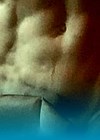My journey to finding urology as a chosen career was not linear. During medical school, I always enjoyed studying urological and renal pathologies. I was exposed to one week of urology placement during my fourth year ‘surgical block’, where I was only scheduled to be on the wards with no clinic or theatre time. It is widely known that exposure to urology in medical school is suboptimal, and students rarely get a good insight into what this specialty entails.
I did not consider surgery as a career until after medical school. Unfortunately, some unpleasant experiences in theatre at the start of my clinical years made me avoid seeking opportunities to learn more about surgery and I had prematurely written it off as my career path. Instead, the variety, procedures and acuity of patient presentations of emergency medicine called to me. Nonetheless, the reality of shift work, lack of continuity and constant intense working environment that I experienced when I did this job in my foundation years made me realise that it was not all I had dreamt it up to be.
I remembered feeling lost mid-way through FY2 not knowing what my vocation would be as I did not feel passionate about any specialty. Thankfully, I found hope when I started a job in general surgery where I cross-covered urology and orthopaedics overnight. This was my first experience clerking in surgical patients acutely and formulating management plans. Things took a turn for the better when I was pleasantly surprised to find myself enjoying the job. I particularly liked the possibility of offering an intervention to an acute problem which my patients benefited from. I received a lot of positive feedback from my seniors and their support of my learning reinforced my desire to explore a career in surgery. I started to attend clinics, multidisciplinary team (MDT) meetings, and theatres to gain exposure to parts of the specialty that you did not typically see as a foundation doctor.


My interest in urology really grew when I was on-call one weekend. It was a slow weekend, and I did not have any patients to see. The urology registrar was having a busy day and invited me to accompany him to emergency theatre (CEPOD). This was my first time in a urology theatre, and this day was a cornerstone in the path of my future career. The cases were relatively straightforward: cystoscopy and dilatation for a stricture and a case of post-circumcision bleeding. However, I was shocked when the registrar explained to me how to navigate the cystoscope and supervised me in performing the initial urethroscopy to locate the stricture.
After that day, I went out of my way to gain as much experience as I could in urology. I would attend CEPOD and followed the registrar around when I was on-call. I learnt so much in a short space of time and gained many useful skills. Another memorable moment in my journey was managing to insert a catheter into a man with an enlarged prostate that multiple people had attempted, through the good techniques I had picked up from the urologists. I think we can all admit that there is no better feeling!
Spending time with urologists allowed me to learn about what my life could look like in the future. I love being a doctor, however I have aspirations outside of medicine, such as having a family and hobbies. The urology consultants all seemed very content and they were able to achieve a great work-life balance. This really solidified for me that urology is a great career choice.
Shortly after my surgical job ended, I applied to multiple clinical fellow jobs in urology in the west of Scotland. I was thrilled when I was offered a job as Clinical Research Fellow in Glasgow, where I am currently working.
This year as a clinical fellow has been the most valuable year in my medical career to date. From the first day, I was thrown in at the deep end, however this meant I learned so much very quickly. On-calls are busy, yet I do not mind that because I am constantly learning new skills and working with a supportive and fun team. My job plan includes designated time for research, with which I have conducted multiple projects that I have presented nationally.
I decided to apply to core surgical training this year despite feeling underprepared. The urology team at Queen Elizabeth University Hospital helped me to maximise my portfolio in a short period of time and supported my preparation for my interview. March came around very quickly, and I am thankful to have secured a job in my first-choice deanery with rotations in urology and general surgery.
I feel so happy to know I have finally found my niche and I am so excited to continue my journey to become a urologist. Next stop: securing an ST3 number!
TAKE HOME MESSAGE
-
Keep an open mind when considering specialities in medical school and foundation years.
-
If you show an interest and enthusiasm in a specialty, they will reciprocate and support you.
-
Find people that you enjoy working with and would like to be in their position in 10 years’ time.








